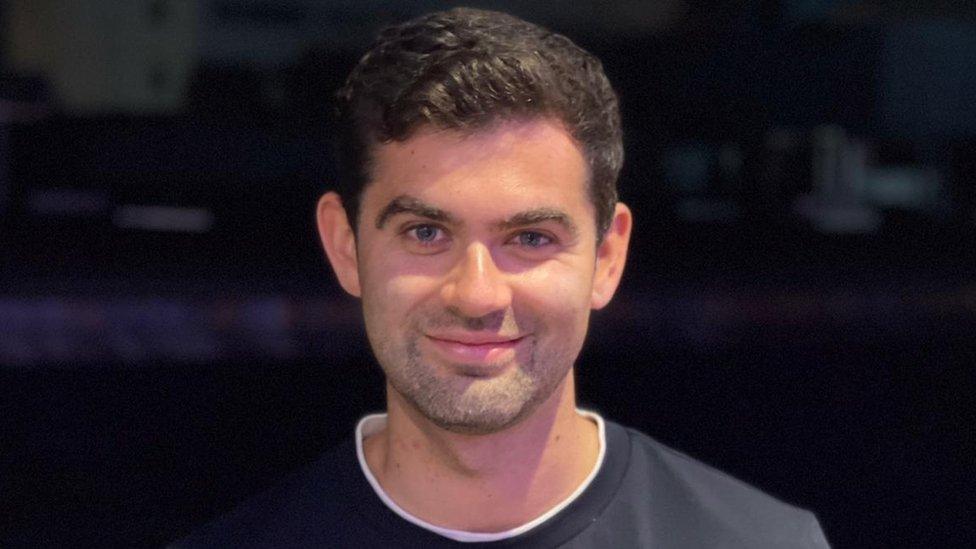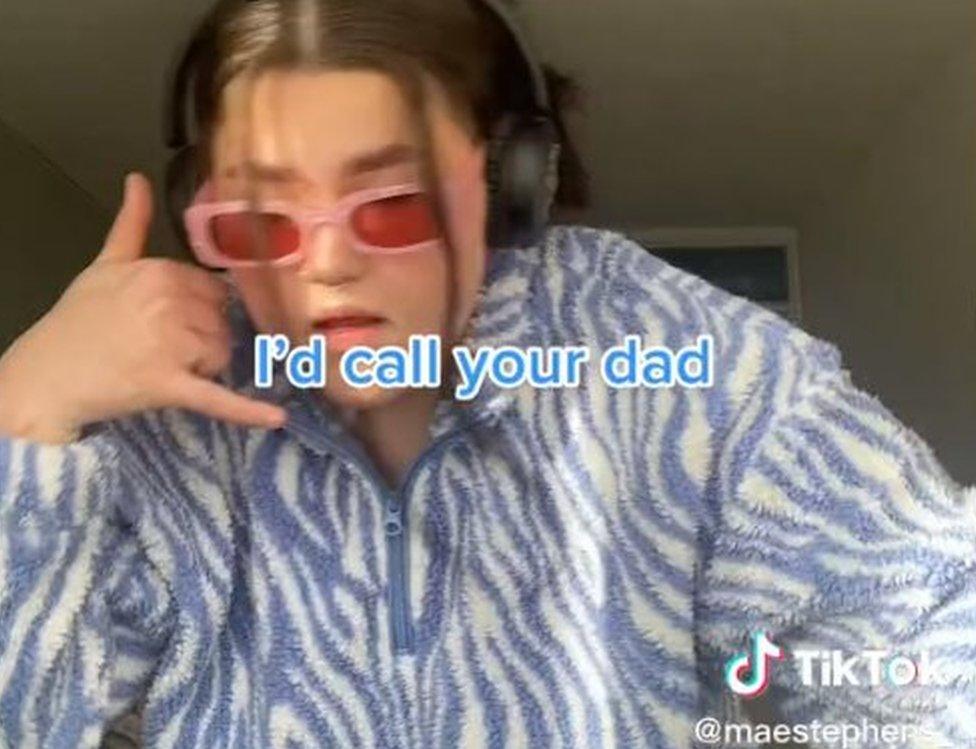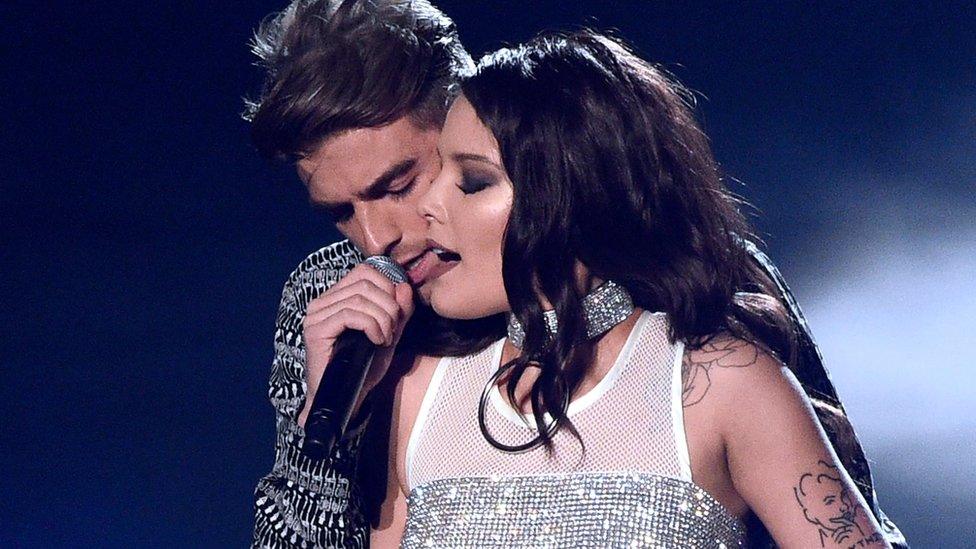How do radio stations choose their playlists?
- Published
- comments

Harry Styles is a regular on most UK pop station playlists
If you're a big lover of music radio, you'll know the drill.
You hear a song non-stop at work, in the car or down the shop until, suddenly, it's living rent-free in your head.
That's probably because it's been put on a radio station playlist - a revolving selection of about 50 tracks.
But who decides what songs do or don't feature? And how do they make sure they're picking the right ones to keep people listening?
One person who knows is Al Smith.
He's a music programmer who's helped to choose the tunes for some of the UK's biggest youth radio stations over the last 10 years.
It's a big responsibility. What you choose - and sometimes, what you don't - will shape the sound of a station.
So how do you decide?
Al tells BBC Newsbeat the most important factor by far is "understanding what the target audience would enjoy".
For Al, that's anything that appeals to young people.

Al loves his job, because he gets to "spend a lot of time talking about music"
So how do you get into the shoes of an ideal listener?
It used to be the case that major music labels had a lot of power, having direct contact with decision-makers at radio stations and putting forward their artists.
But Al's noticed a shift.
"Music programmers are pretty open-minded as to where a song has come from," he says.
"Stations will promote unsigned artists if there are other factors that are causing that song to do well".
Step in TikTok. Remember Mae Stephens' banger of a heartbreak song If We Ever Broke Up?
Mae was unsigned and putting songs out on the platform when the track went viral. Within a short time, her song was fast-tracked onto the playlists of pop music stations.
As well as being useful tools for artists, TikTok and other social media mean fans have more power than ever.
It's what Al calls the "democratisation of music."
He explains there are now many places where fans can consume music, including music streaming platforms and YouTube.
This means stations are under more pressure to reflect what fans want in their playlists.

Mae's original version of the track has had more than 11 million plays on TikTok
But you can't please everyone.
That's something UK radio stations, including BBC Radio 1, have been finding out recently.
You might have noticed a lot of tweets criticising them for leaving Kylie's Padam Padam off their playlists - even though the song almost broke into the UK top 10.
In a statement Radio 1 told Newsbeat it considers tracks for its playlist "based on its musical merit and whether it is right for our target audience".
It said it makes decisions on "a case-by-case basis".
Al agrees that it's all about pleasing your target audience.
"Some stations aim younger and it may be the view that Kylie isn't the right artist for that," he says.
"Unfortunately, you're always going to make somebody unhappy with the decisions you make.
"There's only so many hours in a day to play songs."
'Debating the playlist'
It's not just station listeners that feel passionately about the songs they want to hear.
In fact, Al says debates among playlisters are common too.
"You get a lot of fiery opinion because one person's potential bias is normally outweighed by somebody else's counter-view."
Asked whether personal music taste ever impacts his own decision making, Al says he tries to avoid it.
"Objectivity is an art, but you can't ever say that you haven't let a personal opinion get in the way of a decision.
"Ultimately we do this job because we're passionate about music, so if you hear a song that you think is incredible, you want others to hear it."


Follow Newsbeat on Twitter, external and YouTube, external.
Listen to Newsbeat live at 12:45 and 17:45 weekdays - or listen back here.
- Published20 March 2023

- Published23 September 2016
